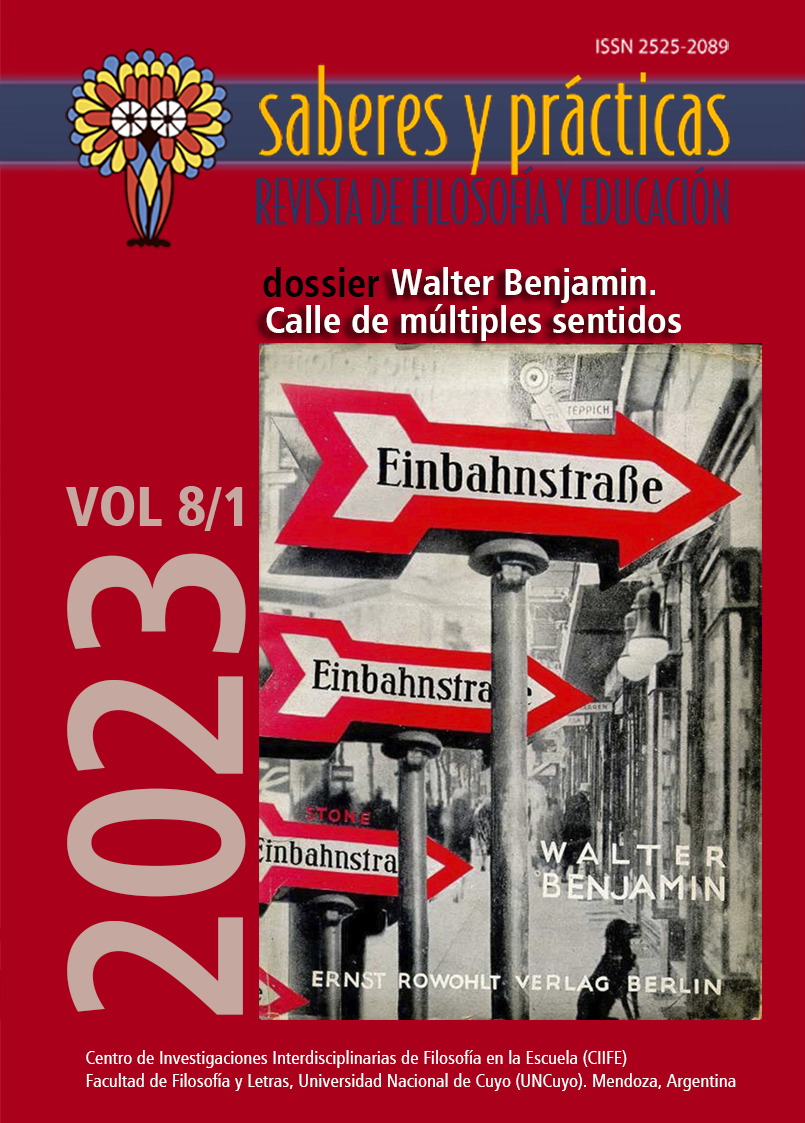Violence and Power. The other Insertion to the Teaching of the Novice Teacher of Primary Education
DOI:
https://doi.org/10.48162/rev.36.087Keywords:
violence, power, novice teacher, insertion, primaryAbstract
This paper presents the results of an investigation on the appropriation and development of teaching knowledge of novice teachers during their first experiences of professional practice in the state of Sinaloa (Mexico). The evidence revealed an alternative insertion environment that provided knowledge constrained by a criminal context endemic to communities affected by drug trafficking. Hence, the theoretical positioning addressed the social relations of violence and power in view of their epistemic value re-signifying the effect of the clash with reality, typical of this stage where an incipient professional socialization is experienced. The methodology was qualitative in nature, based on ethnosociology and the life story interview, recovering the experiences of 70 new teachers chosen through a non-probabilistic sample, a typical-ideal case. The results were grouped, according to their recurrences, into four hierarchical dimensions: 1) personal, 2) school, 3) community and 4) delinquency, according to their level of affectation. Among the conclusions, it is noted that the insertion of the novice teacher immersed in an environment dominated by the subculture of drug trafficking, transfigures the learning of the profession with specific and usable teaching knowledge to survive this contingency given its intra- and inter-academic influence.
Downloads
References
Álvarez-Gayou, J. L. (2003). Cómo hacer investigación educativa. Paidós Educador.
Arendt, H. (1993). La Condición Humana. Paidós.
Beaud, S. (1996). L´usage de I ´entretien en sciences sociales. Plaidoyer pour « I ´entretien ethnographique », Politix, (35).
Bertaux, D. (2005). Los relatos de vida. Perspectiva etnosociológica. Ediciones Bellaterra.
Bisquerra, R. (2004). Metodología de la investigación educativa. La Muralla.
Feiman-Nemser, S. (2001). For preparation to practice: designing a continuum to strengthen and sustain teaching. Teachers college record, 103, (6), 1013-1055.
Foucault, M. (1998). La Palabras y las Cosas. Una arqueología de las Ciencias Humanas. Editorial Siglo XXI.
Foucault, M. (2002). La Arqueología del Saber. Editorial Siglo XXI.
Foucault, M. (2014). Las redes del poder. Prometeo.
Geertz, C. (1973). La interpretación de las culturas. Gedisa.
Hernández, R., Fernández, C. & Baptista, P. (2014). Metodología de la investigación (6ª ed.). McGraw Hill.
Instituto Nacional de Estadística, Geografía e Informática (2022). Maestros y escuelas por entidades federativa según nivel educativo, ciclos escolares seleccionados 2020/2021. https://www.inegi.org.mx/app/tabulados/interactivos/?px=Educacion_07&bd=Educacion
Marcelo, C. (1991). Aprender a enseñar. Un estudio sobre el proceso de socialización de profesores principiantes. CIDE.
Marcelo, C. (2008). El Profesorado Principiante. Inserción a la docencia. Octaedro.
Rockwell, E. & Mercado, R. (1986). La práctica docente y la formación de maestros. En E. Rockwell y R. Mercado (Eds.), La escuela, lugar del trabajo docente. México: Departamento de Investigaciones Educativas del Centro de Investigación y Estudios Avanzados del IPN.
Rodríguez, G; Gil, J., García, E. (1996). Metodología de la investigación educativa. Aljibe.
Tardif, M. (2004). Los saberes del docente y su desarrollo Profesional. Narcea.
Tulving, E. (1983). Elements of episodic memory. Oxford: Clarendom Press.
Veenman, S. (1984). Perceived Problems of the Beginning Teachers. Review of Education Research. 54, (2), 143-178.
Villoro, L. (1982). Creer, Saber, Conocer. Editorial Siglo XXI.
Published
How to Cite
Issue
Section
License
Copyright (c) 2023 Erick Zorobabel Vargas Castro
This work is licensed under a Creative Commons Attribution-NonCommercial-ShareAlike 2.5 Argentina License.





















